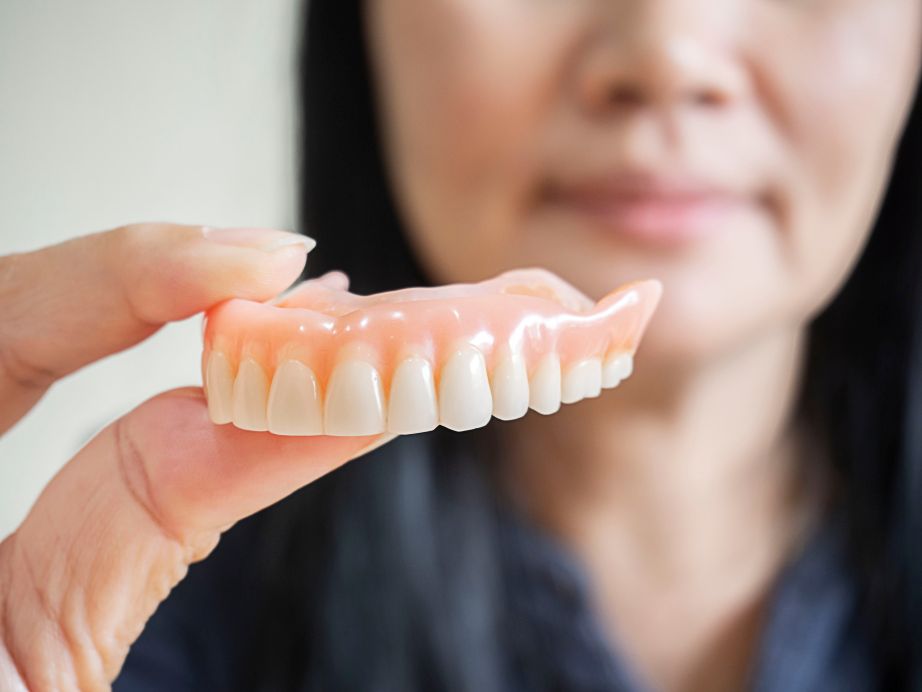
Having clean, damage-free, well-fitting dentures is essential for these life-changing prosthetics to work. After all, if they don’t stay securely in place while in use, they can’t do what they were designed to do: restore your ability to smile, speak, and eat properly. But in addition to complicating your ability to do these everyday activities, ill-fitting dentures can also cause a variety of other frustrations that you may not have considered. Here are just a few things that could go wrong when your dentures don’t stay in place, and what you can do about it.
Discomfort, Chafing, and Denture Sores
When your dentures are loose, they can move around, causing chafing or discomfort when you eat, speak, or chew. Conversely, if they are too tight in spots, they put excess pressure on your gums, creating painful denture sores. All of these can make your mouth ache, making it hard to use them correctly, and leaving you vulnerable to infection that could require antibiotics to cure.
Speech Difficulties
If your dentures don’t fit right, speaking normally can be a challenge. That’s because if you’re too busy trying to keep your prosthetics in place or your tongue is unable to contact them in the correct places to form words, the sounds you make may not sound like they should. This can result in a lisp or other speech impediment that leaves you feeling shy or makes you avoid speaking altogether.
Embarrassment
If your dentures fall out of place mid-sentence or bite, it can be very embarrassing. This feeling of humiliation can make you avoid social situations, increasing feelings of isolation, sadness, loneliness, and depression.
TMJ Disorders
Your temporomandibular joint (TMJ) connects the jawbone to the rest of the skull. It is responsible for mouth movement, including speaking and chewing. When it becomes stressed, it can sometimes become extremely painful and maybe even misaligned, leading to a TMJ disorder. In addition to jaw discomfort, this can also cause neck, head, and shoulder aches, as well as tinnitus (ringing of the ears) and difficulties opening and closing the mouth to eat and speak.
Malnutrition
Finally, if you’re unable to chew a variety of nutritious foods, you are leaving your body vulnerable to malnutrition. This can create a variety of health problems not just in the mouth, but throughout the entire body.
Preventing Improper Fit
Now that you know the dangers of improperly fitting dentures, how can you overcome this problem? The good news is that in some cases, your dentist may be able to reline your prosthetics if they are in otherwise good condition. This procedure can help restore their fit, allowing you to use them how they were intended, and without the painful and embarrassing side-effects. If your dentist is unable to repair them, it may be time to upgrade to a new pair. Dentures should be replaced every five to ten years due to everyday wear and tear.
Remember, poorly fitting prosthetics can make the very activities they were designed to assist with, including speaking and eating, extremely difficult. If your dentures no longer stay in place or are causing any pain points at any part of the restoration, schedule an appointment with your dentist today, as it could be time for a reline or replacement.
About Dr. Whitmore
Dr. Robert A. Whitmore earned his undergraduate degree at Houston Baptist University and his dental doctorate at Baylor School of Dentistry. He is a current, active board member of Dental Health Arlington, a nonprofit that provides dental treatment and oral health education to low-income individuals in the community. To schedule an appointment for dentures, please visit our website or call us today at 817-468-1212.
